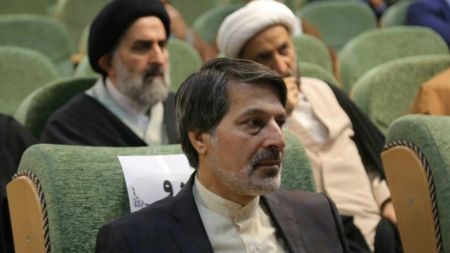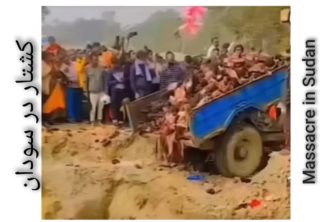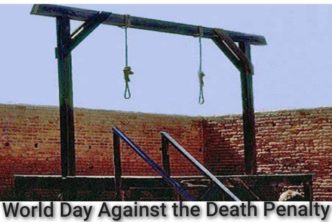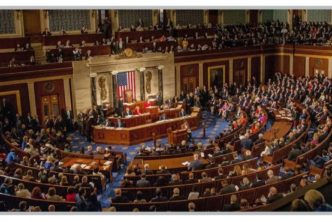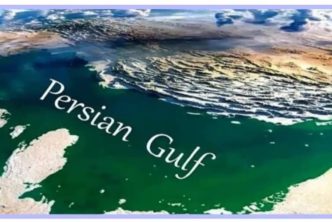Ceremony for EMAD BAGHI
Laureate of the Martin Ennals Award for Human Rights Defenders (MEA)
Victoria Hall, Geneva, 2 November 2009, 18h00
http://www.martinennalsaward.org/en/press/speeches09.htm
Speech by Hans Thoolen, Chairman MEA
Your Excellencies, dear friends,
With my usual apology for addressing you in English, I warmly welcome you to the 16th ceremony of the Martin Ennals Award for Human Rights Defenders. This event keeps changing and growing beyond expectation but hopefully not beyond recognition.
There are welcome elements of continuation, such as the partnership with the Ville de Genève, the City of Human Rights, and the unique cooperation among ten leading international human rights NGOs who form the Jury.
There are many positive changes, such as:
– the move to larger premises, and I want to thank the staff of this splendid Victoria Hall for their help;
– a new poster campaign as you will have seen on over 200 billboards throughout Geneva, for which I want to thank Sandrine Salerno who had the idea;
– in response to the request from last year’s audience, we had a short visual presentation of what the Martin Ennals Award stands for and I want to thank the True Heroes Foundation for this clip as well as the film images you will later in the programme;
– the international media are taking more and more notice of the award and have started to refer to the Martin Ennals Award as a kind of “Nobel” prize for human rights, to quote just Le Monde, El Pais and La Tribune de Genève
The Jury, meeting in Madrid on 19 May, did spend considerable time on the final selection. The difficulty was mostly the quality of the other nominees which were, as announced by Barbara Hendricks on 14 March, Mary Akrami (Afghanistan), Chea Mony (Cambodia), Wan Yanhai (China) and Maina Kiai (Kenya). That Emad Baghi – ultimately but unanimously – became the winner was the result of tough choices and long negotiation.
Emadedin Baghi is a theologian, a writer and journalist, who became an active human rights defender in the 1980s. He has been a vigorous and outspoken opponent of the death penalty in Iran based on a scholarly examination of Islamic law on the subject. Baghi has spent several years in prison over the past decade: in 2000 he was sentenced to 7,5 years imprisonment but was released in 2003. Marked by his time spent in jail, he founded the recently banned Society for the Defense of Prisoners’ Rights. In addition, Baghi has been collecting information about all executions since the Islamic Revolution in 1979 (more than 10,000 by Baghi’s estimate, including juvenile offenders). This inventory has been an important resource for UN human rights bodies as well as the whole human rights movement. He has published numerous articles and books about a variety of topics, including: democratic interpretations of Islam, the killing of dissident intellectuals in the late 1990s, the death penalty and executions.
Baghi was chief editor of the now banned Fath newspaper. In 2005 he created another newspaper, The Republic, with sections on human rights, but this one also got banned. He published some 20 books of which 6 are currently banned, but the others are more or less available, demonstrating again that most of Emad’s discourse cannot be faulted, even by a regime that uses any pretext to suppress dissent.
His latest arrest and conviction were in 2007. Currently out of jail, he still faces a suspended sentence. Baghi suffers from heart and kidney ailments. In addition, he and his family have to cope with serial harassment in the form of an extraordinary number of interventions from the police and the judiciary. Since 1995, Mr. Baghi and his family have been ordered to appear in court or the intelligence ministry 78 times.
Baghi’s space to be seen and heard in Iran is becoming more and more limited, which is dramatic as his assessment of how Islamic precepts can be used against the death penalty would greatly assist the human rights debate in Iran and the whole Muslim world. The more reason to give him the chance to be heard here in Geneva. This is what Emad had to say about the likelihood of him coming here: (1 minute images on screen).
While last year Mutabar Tadjibaeva from Uzbekistan was released from prison and allowed to travel abroad, this year in spite of numerous diplomatic interventions – including by all the EU countries – the Laureate’s passport was not returned to him. So, for the first time in the history of the Martin Ennals Award the laureate is not allowed to come and receive it in person. As is to be expected from the regime in Teheran, no reasons were provided for this refusal. Even Emad’s family was not allowed to come and represent him. This negative attitude only serves to underscore how bad the human rights situation is in that country and that Jury’s decision to award again – after Ganji in 2006 – a human rights defender from Iran is more than understandable. The new logo for the MEA ceremony turned out to be sadly appropriate this year: the Laureate has had his mouth torn off.
Emad’s name means ‘central pole’ or pillar and I believe that this is most appropriate. People like him are the ‘pillars’ of the future human rights building. We should demand – Emad would probably add that we should also pray – that he and other human rights defenders in Iran will be allowed to continue their work without harassment.
To my great regret I cannot call the Laureate on stage this year, but instead I have to honour to introduce the opera star and true human rights activist – what a rare combination! – Barbara Hendricks who will give a musical homage to our Laureate.
Thank you for your attention, Hans Thoolen
Speech by Navanethem Pillay
UN High Commissioner for Human Rights
Ms. Vice-Mayor,
Mr. Director General,
Excellencies,
Ladies and Gentlemen,
It gives me great pleasure to be here at the 2009 Martin Ennals Award ceremony. This prestigious award honours the courage of those who risk their lives to promote and protect human rights and fundamental freedoms.
Eleven years ago, the General Assembly adopted by consensus the Declaration on Human rights Defenders. Yet, human rights defenders across the globe are increasingly coming under attack. Human rights defenders, and in particular women, continue to pay a high price for their peaceful engagement in promoting and defending human rights. In all parts of the world, they are killed, tortured, sexually abused, disappeared, and arbitrarily detained. Their freedom of opinion, expression, association and peaceful assembly are illegitimately restricted. The Martin Ennals Award is therefore particularly important as it celebrates the ideals and work of human rights defenders. It signals that the international community is proud of them and constantly mindful of their wellbeing. Thus, your award contributes to the enhancement of defenders’ protection.
I warmly congratulate this year’s award recipient, Mr. Emad Baghi, an outstanding Iranian human rights defender, but deeply regret that the authorities of his country did not allow him to travel to Geneva to receive his award. Because of his tireless efforts in campaigning against the death penalty, as well as the sacrifices he has endured over the past decade, Mr. Baghi is a source of tremendous inspiration for all human rights defenders around the world. Unfortunately, his many years in prison have left him in very poor health. I find it particularly worrying that since 1995, Mr Baghi has been ordered to appear in court or summoned to the intelligence ministry 66 times, and still faces charges related to his human rights activities.
I salute Mr. Baghi’s commitment to human rights. He truly deserves this prize and our admiration. Many in Iran and elsewhere, I am sure, will draw fresh impetus from the recognition of his selfless work.
Thank you.
Message from Emadeddin Baghi,
Laureate of the Martin Ennals Award for Human Rights Defenders (MEA) 2009 read by Kate Ennals, daughter of Martin Ennals
(at the request of Emad Baghi)
Human beings are members of a whole,
In creation of one essence and soul.
If one member is afflicted with pain,
Other members uneasy will remain.
If you have no sympathy for human pain,
The name of human you cannot retain. From a poem by the Persian poet Sa’adi 1210-1290
Ladies and Gentlemen,
These lines are from Sa’adi, a renowned Persian Poet, and grace the entrance of the UN in New York. Your ceremony is the manifestation of such classic and deep desire. This day for me is an historic event, but unfortunately I cannot be there in person to receive this honor because I am being denied a passport which would allow me to leave this huge prison. For this reason I have to speak with you through this message.
Despite the fact that there is a lot to say about the challenges of human rights in the world and its solutions, I want to emphasize just on four points here:
1- Human rights organizations should be more effective in the political arena. Power and its organs have powerful facilities. So the human rights organizations must use their powerful forces against those who abuse political power. But because the professional human rights activists have to keep distance from power, it is necessary to rethink our strategy and find a new guarantee for success in the public arena, a kind of “human rights force”. Without it we waste energy and achieve little. Although the development of human rights activities will improve things, many people will still be suppressed and crushed. It is necessary for the international human rights organizations to call on the viewpoints of the activists around the world and ask them to contribute to the mechanism by which we exchange views and acquire collective wisdom to find a solution to the problem. Such a call will strengthen and improve the sense of participation and collective responsibility. One example of a human rights force is that in March 2008 an Austrian company declared that investment in Iran must be stopped until the execution of children is ended. Human rights campaigners can convince well-known companies and universities worldwide to use every opportunity, even if it is outside of their direct responsibilities, to promote human rights.
2- The reason why in some countries human rights are being violated systematically is that there is no independent judiciary. In another words, the judges and prosecutors are under pressure of or subjected to security forces or political powers. Thus, instead of protesting against the illegal and unlawful sentences, one must take into account the lack of judiciary independence. And the international society must not recognize such sentences issued by such judiciary systems unless it proves its independence from the security forces and political powers.
3- “Prison” is a universal and enduring issue. Even if someday the death penalty is abolished, prison will remain. The prison systems have close links to human rights violations such as torture, diminishing of human dignity, etc. The experience of Guantanamo, Abu Graib, as well as in other countries and recently the torture in the prisons in Iran, which caused deaths of my fellow country men and women, proves that in the onset of the third Millennium we still encounter an immense violation of the human rights in prisons both in the developing and the developed world. This is a chance for me to reiterate my proposal to declare in the UN an International Day in Defense of the Prisoner. I am looking forward for the declaration of such day and have drafted already some ideas, which you can obtain from the Secretariat of the Martin Ennals Award.
4- At the moment in most Islamic countries the death penalty is prevalent and the reason is the traditional view that abolishment is against particular verses of the Qu’ran. This shows that in Islamic countries we need a transformation in the minds of people to re-interpret the Holy Book and show the humanistic base of Qu’ran. In this regard, on the occasion of the Arab Campaign for Human Rights and the International Campaign for Human Rights in Iran, my book “The Right to Life” was translated into Arabic, published and distributed in the Arab World. This book argues that the abolishment of the death penalty is not against Islam.
Emadeddin Baghi, 2 November 2009

